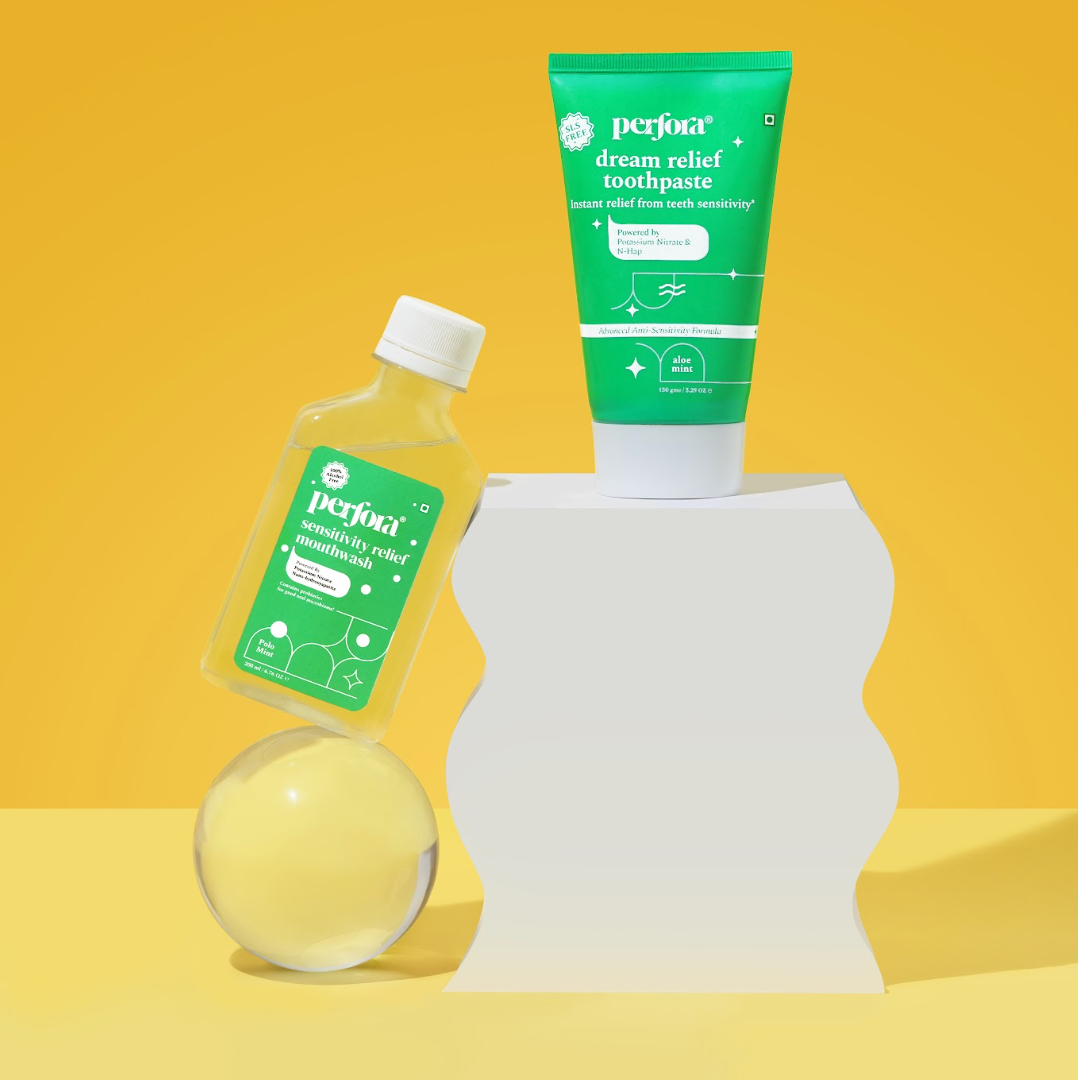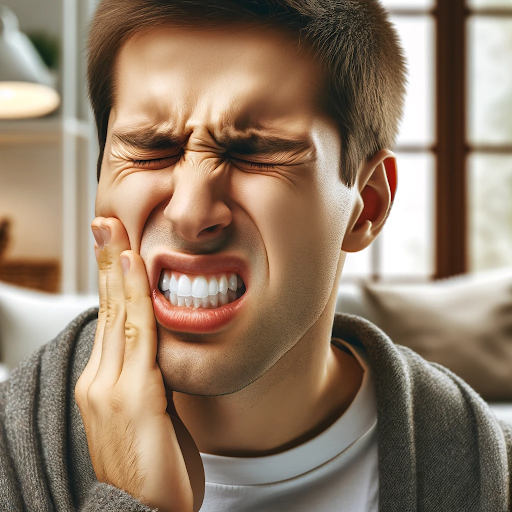While dental cleanings are essential for maintaining good oral health, they can sometimes leave your teeth feeling unusually sensitive. However, it’s not uncommon to experience discomfort or tooth sensitivity after cleaning. Understanding why this happens and how to manage sensitivity in teeth after cleaning, makes the experience more comfortable and stress-free.
Why Sensitivity in Teeth After Cleaning Happens
Dental cleaning often involves using specialized tools to remove plaque and tartar from the surface of the teeth along the gum line. While this process is essential, it can sometimes result in sensitivity in teeth after cleaning. This process can make your teeth feel sensitive, especially if the enamel is thin or the gums recede slightly.
The sensitivity in teeth after cleaning is normal because your teeth are adjusting to the exposed areas that were previously covered by tartar. Additionally, tooth sensitivity after cleaning might also occur due to minor irritation caused by the cleaning tools used by your dentist. Sensitivity after scaling can also happen because the protective layer that insulates these areas is temporarily reduced, exposing the dentin or nerve endings.
Sensitivity After Scaling: Common Causes
Scaling, a more intensive form of cleaning, involves the removal of hardened tartar from the teeth and below the gum line, and this can exacerbate sensitivity, particularly for those with underlying dental issues. Here are the most common reasons why the teeth hurt after cleaning:
- Exposure of sensitive areas: Scaling removes tartar that may have covered exposed dentin or root surfaces, leaving these areas vulnerable to temperature changes and other triggers.
- Gum irritation: During scaling, the gums may become slightly inflamed, contributing to the sensation of sensitivity.
- Pre-existing dental condition: Issues like cavities, worn enamel, or gum recession can make teeth more prone to sensitivity after scaling.
- Temporary gum inflammation: The cleaning process may cause slight irritation to the gums, making teeth sensitive for a short period.
These are the most common reasons why people experience sensitivity after scaling. Some patients report their teeth sensitive weeks after cleaning, which may indicate deeper dental issues.
How Long Does Tooth Sensitivity After Cleaning Last?
You've gotten your cleaning done and now you have sensitivity. Worry not, this sensitivity usually lasts a few days to a week for most of the people. However, the duration can vary depending on the person’s oral health and the extent of the cleaning.
If you feel your teeth sensitive weeks after cleaning, it’s essential to consult your dentist. Prolonged sensitivity might indicate issues like enamel erosion, gum recession, or untreated dental conditions.
For some individuals, the discomfort is mild and quickly subsides as their teeth adjust. For others, it may linger longer, especially if cleaning involves scaling or if they have preexisting sensitivity. Knowing how long it typically lasts can help you manage your expectations and take appropriate measures to ease discomfort.
Tips to Manage Tooth Sensitivity After Cleaning
Dealing with sensitivity in teeth after cleaning can be a bit challenging. Managing tooth sensitivity after cleaning involves both immediate relief and preventive measures. The following tips can help with after-scaling teeth sensitivity and alleviate discomfort:
- Switch to desensitizing toothpaste: These toothpaste formulations contain ingredients like potassium nitrate, which help block nerve signals and reduce sensitivity in teeth after cleaning. Learn more about the benefits of potassium nitrate for sensitive teeth here.
- Avoid acidic or hot and cold drinks: After cleaning, teeth sensitivity can be avoided by sticking to lukewarm water or neutral foods. This can prevent irritation to sensitive areas.
- Maintain good oral hygiene: Gentle brushing with a soft-bristled toothbrush and remineralising toothpaste helps protect enamel and soothe gums.
- Rinse with warm salt water: After cleaning, teeth sensitivity can be minimized by using a warm saltwater rinse. This can soothe gums and reduce sensitivity after scaling.
- Over-the-counter pain relief: If discomfort is severe, anti-inflammatory medication may help temporarily.
Explore more home remedies for sensitivity here.
Preventing Sensitivity During Future Cleanings
While post-cleaning sensitivity can’t always be avoided, there are a few steps you can take to minimize the chances of it happening again:
- Inform your dentist about your sensitivity: Let your dentist know if you have experienced sensitivity in the past. They can adjust their cleaning techniques or apply numbing agents to make the procedure more comfortable.
- Consider fluoride varnish: This protective layer applied after cleaning can help shield sensitive areas and reduce the likelihood of discomfort.
- Maintain good oral hygiene: Regular brushing and flossing prevent tartar buildup, which means less intensive cleaning is required. This can reduce irritation and sensitivity during future visits.
- Use desensitizing products beforehand: If you know a cleaning appointment is coming up, start using toothpaste for sensitive teeth a few weeks in advance to prepare your teeth.
By taking these preventive steps, you can significantly reduce the risk of sensitivity in teeth after cleaning and ensure a more pleasant experience.

Conclusion
If your teeth hurt after cleaning, remember that it’s usually temporary and manageable. Understanding the causes, such as sensitivity after scaling, and following these tips will ensure you manage sensitivity effectively and maintain excellent oral hygiene without unnecessary discomfort.
Dental cleaning is an essential part of maintaining oral health, so don’t let sensitivity deter you from regular visits. By being proactive and working with your dentist, you can minimize discomfort and enjoy the benefits of a clean, healthy smile.
With the right care preventive measures, you can make dental cleanings a smoother experience in the future.
Frequently Asked Questions
Q1. How to deal with sensitivity after teeth cleaning?
Answer- Use toothpaste for sensitive teeth, avoid extreme temperatures, and brush gently. Over-the-counter pain relievers can also help. Additionally, rinsing with warm salt water can soothe irritated gums.
Q2. How can I reduce tooth sensitivity quickly?
Answer- Desensitizing toothpaste and fluoride gel can provide quick relief. Stick to lukewarm foods, and avoid acidic foods or overly hot and cold drinks. Gentle brushing with a soft toothbrush can also prevent further irritation.
Q3. How long does tooth sensitivity last after cleaning?
Answer- For most people, sensitivity lasts a few days to a week. If your teeth are sensitive weeks after cleaning, see your dentist to check for other issues such as gum recession or enamel wear.








